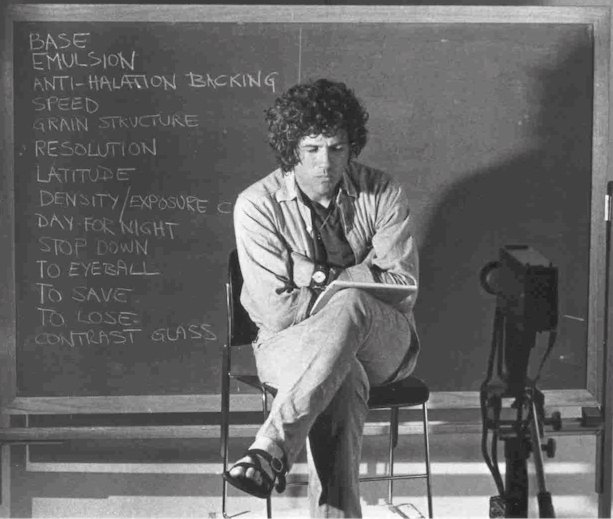
A Life Teaching
After The March, James Blue won a Ford Foundation grant funding interviews with over 50 renowned film directors of the day who worked with non-fiction characters or places in their films. This project displayed his brilliant scholarship and many of the interviews were published in the pioneering film journal, "Film Comment." He also began his notable teaching career. Colin Young asked Blue to join the new Cinema programs at UCLA and The National Film School in Britain, and he continued (with American Film Institute Founder George Stevens Jr.) at the AFI Institute and then at The Rice University Houston Cinema Arts Center. His students and those he influenced included Francis Ford Coppola, Jim Morrison, Joan Churchill, Paul Schrader, Terrance Malick, David MacDougall and many others. His visiting and collaborating colleagues included Colin Young, Gerry O’Grady, Joan Churchill, Roberto Rossellini, Marcel Ophuls, Pier Paolo Pasolini, D.A. Pennebaker, the Maysles Brothers, and many others. And always he continued groundbreaking filmmaking, including the ethnographic film Kenya Boran, the personal essay film, A Few Notes on our Food Problem, (nominated for an Academy Award), and the Complex Urban Documentaries: Who Killed the Fourth Ward, and Invisible City, in which he pioneered new forms of film, and handed the camera to his subjects. Before he died in 1979, he gave a series of eight lectures at the Museum of Modern Art in New York City that encapsulate his extraordinary understanding of film and its audiences. Citizen Blue shows this moving story of a life that left its mark in film--and in its impact on filmmakers and peoples of the world.
Creating Citizen Filmmakers

The James Blue Alliance
The organization launched by Richard Blue to honor his brother’s life and build his legacy
